There are 6 classes of essential nutrients. These six classes are carbohydrates, proteins, vitamins, minerals, fats, and water. When you really break it down, the meal usually consists of just the three big nutrients; proteins, fats and carbohydrates.
For most people, a calorie means fat. Calories are just a measurement used to measure energy. Calories are found in carbohydrates, proteins, and fats. Too much of this energy is not burned up and will add to fat cells.
6 classes of essential nutrients
1. Carbohydrates
Carbohydrates are the major source of energy for the body. One gram of carbohydrate is four calories. Carbohydrates are in the form of grain products such as breads, cereals, rice, noodles, etc. They are also found in fruits and vegetables. Not all carbs are bad. There are good and bad carbs; When good carbs are over consumed, they become bad for us because of the mounts.
+ Bad carbs are refined carbohydrates; this is the stuff you want to eliminate. Refined carbohydrates are food products that have been stripped of fiber, germ, bran and practically all nutrients and the other good stuff. And the only thing left is sugar (or starch).
Examples of refined and conventional carbohydrates would be white rice and wild rice. White rice is stripped of all the good there was in it (refined); wild rice still has all the good stuff (nonrefined) in it.
+ Good carbs come in whole-grain products, fruits, nuts, and vegetables.
The truth is we need carbohydrates. Low carb diets are not exactly smart. Change the quality of the carbohydrates rather than the quantity. You should only change the amount if you eat more than your body needs.
Eating too many carbohydrates will cause a spike in your blood sugar level. Eating refined carbohydrates (the bad ones) will cause your blood sugar to “spike”. Refined carbohydrates take less work to digest and are injected into the system at a faster rate. After constantly eating too many carbs or eating a lot of refined carbs, insulin resistance comes in. When this happens; any extra sugar is stored as fat; and more insulin is needed.
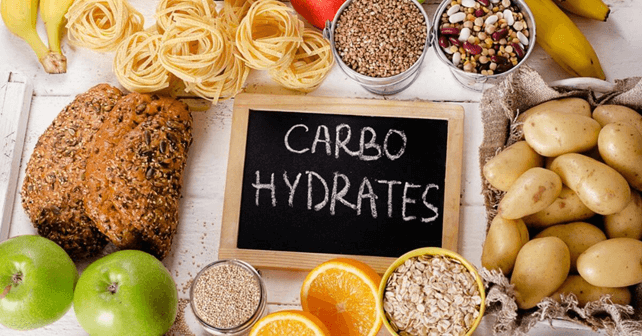
Carbohydrates (Image source: ifitness.vn)
2. Vitamins
The vitamin itself is another nutrient. The body needs vitamins to function properly. In addition to taking a multivitamin, you can eat vitamin-rich foods like fruits and vegetables daily. A fair warning to those you are taking multivitamin pills: some vitamins from multivitamins are said to aid cancer growth.
In the long run, supplements do more harm than good. It’s like being a vitamin D deficient person. Instead of a “supplement,” why not just include more foods with vitamin D in your diet? The reason why almost all supplements are sold in bulk every year is this: they make big profits.
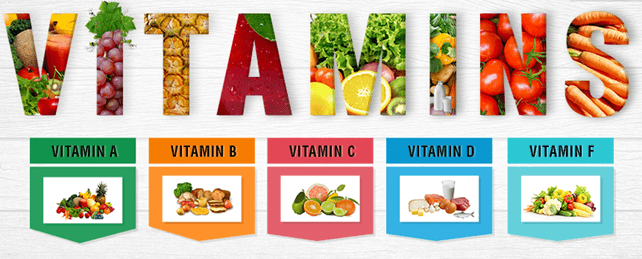
Vitamins one of 6 classes of essential nutrients (Source: herbyorganics.com)
3. Minerals
Minerals are defined as inorganic nutrients naturally present in soil and food that are necessary for the normal functioning of animals and plants.
A mineral is a nutrient needed by the body for growth and development. It help form strong bones and help transmit nerve impulses. They also help maintain a healthy heart rate and hormone production.
Good sources of the mineral are broccoli, other leafy vegetables, and shellfish such as oysters, shrimp, and mussels. Green vegetables are the better choice for minerals because shellfish are high in cholesterol.
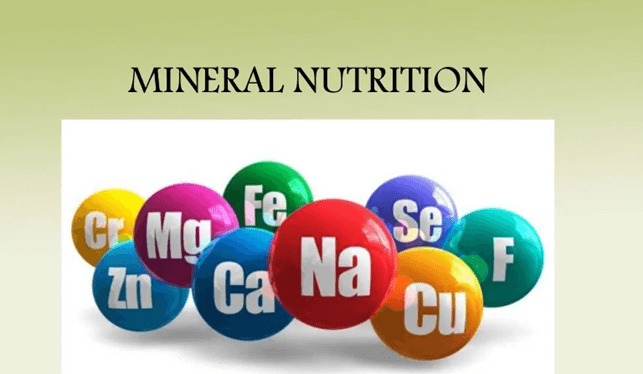
Minerals (Image source: slideshare.net)
Some fats and proteins act as separate nutrients that are important for the body. There are 9 calories per gram of fat and 4 calories per gram of protein.
4. Fats
A small amount of fat is an essential part of a healthy, balanced diet. Fats are a source of essential fatty acids that the body cannot make on its own. Fat helps the body absorb vitamin A, vitamin D, and vitamin E; these vitamins are only fat-soluble.
Any fat your body doesn’t use is converted to energy in the form of fat cells. Likewise, unused carbohydrates and proteins are also converted into body fat.
Some foods that contain fat are animal fat, nuts, ice cream, and salad dressings. Fats from nuts are healthier than animal fats, creams, and salad dressings. Fats are good for your health but choose good fats to eat. Animal fats are bad (saturated) fats. Good animal fats come from fish like salmon and tuna.
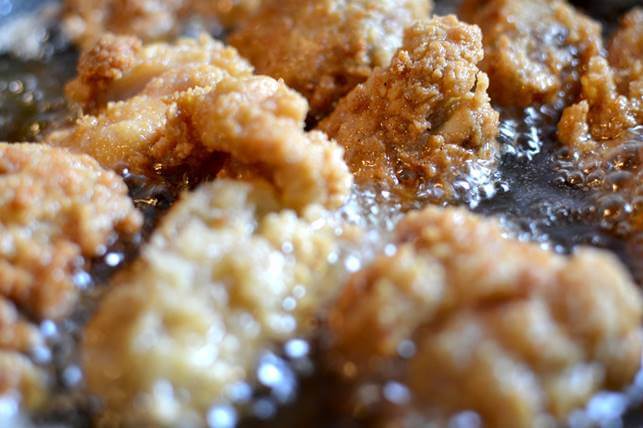
Fats is one of 6 classes of essential nutrients (Image source: nhs.uk)
5. Proteins
The Protein Food Group is made up of a variety of protein-rich foods, including meat, poultry, fish, beans and peas, eggs, and nuts and seeds. In addition to protein, these nutrient-rich foods include B vitamins, zinc, iron, vitamin E, and fiber. The protein in meat, beans, and nuts functions as a building block for bones, muscles, cartilage, skin and blood. Protein is also the building block of enzymes and hormones.
Protein foods such as dried beans and peas are inexpensive sources of protein, while meat and poultry are versatile in the way they can be used. Many lean meats like beef are economical while also having less fat. Although dairy foods have their own category, they are another source of high-quality protein. Yogurt contains all nine essential amino acids in the proportions required for protein synthesis.
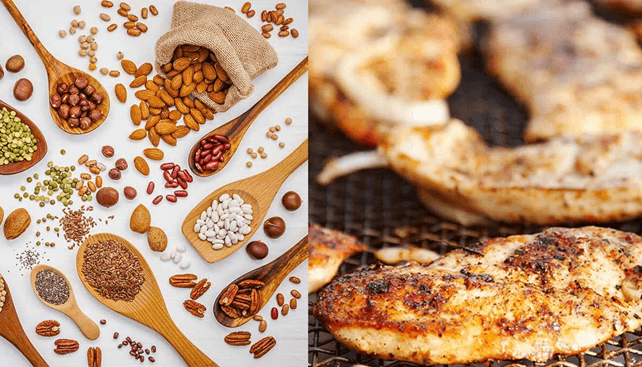
Proteins (Image source: healthyeating.org)
6. Water
Last but not least of the 6 classes of essential nutrients is water. Water is defined as an essential nutrient because it is required in amounts that exceed the body’s ability to produce.
Water is the foundation of all body fluids. It is the ingredient that helps organs function and all cellular processes possible. Your body is mostly made of water. Water is the essence of life. The fact remains that water is an element that we or any living thing on this planet can’t live without.
All biochemical reactions take place in water. It fills the voids in and between cells, helping to form the structure of large molecules such as proteins and glycogen. Water is also needed for digestion, absorption, transport, dissolution of nutrients, elimination of waste products, and temperature regulation.
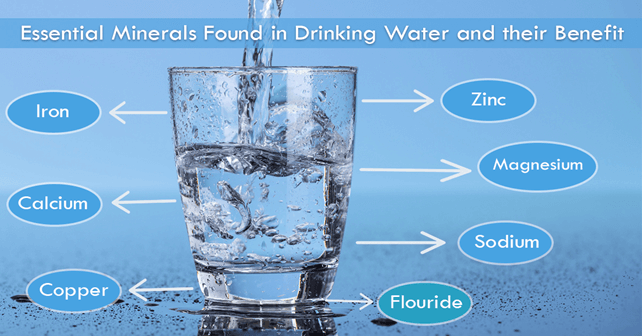
Water is an essential nutrient (Image source: nrv.gov.au)
>>> Related Posts
5 ways to keep your digestive system healthy
10 weight loss myths 2022 – Reasons people fail at weight loss
Is macaroni good for weight loss? 6 healthy macaroni recipes
Six natural habits for effective weight loss
>>> Reference articles
The 6 natural habits for Effective Weight Loss – Russ Nagamori